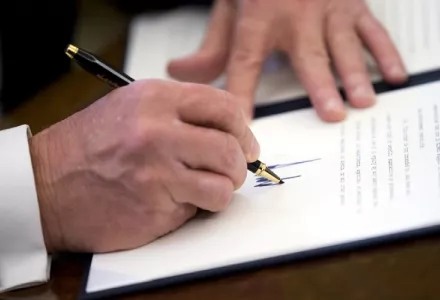Perspectives on the Trump Executive Order on Immigration
Experts will discuss the implications of President Trump's executive order barring most entry from select countries
Experts will discuss the implications of President Trump's executive order barring most entry from select countries

A conversation with:
David French
Senior Fellow, National Review Institute
Veteran of Operation Iraqi Freedom
Juliette Kayyem
Belfer Lecturer in International Security, Harvard Kennedy School
Assistant Secretary for Intergovernmental Affairs, Department of Homeland Security (2009–2010)
Gil Kerlikowske
Institute of Politics Spring 2017 Resident Fellow
Commissioner of U.S. Customs and Border Protection (2014-2017)
Moshik Temkin
Associate Professor of Public Policy, Harvard Kennedy School
Director, Initiative on History and Public Policy, Ash Center Democratic Governance and Innovation
Author, Undesirables: Travel Control and Surveillance in the Age of Global Politics, forthcoming from Harvard University Press
R. Nicholas Burns (moderator)
Roy and Barbara Goodman Family Professor of the Practice of Diplomacy and International Relations
Belfer Center for Science and International Affairs, Harvard Kennedy School